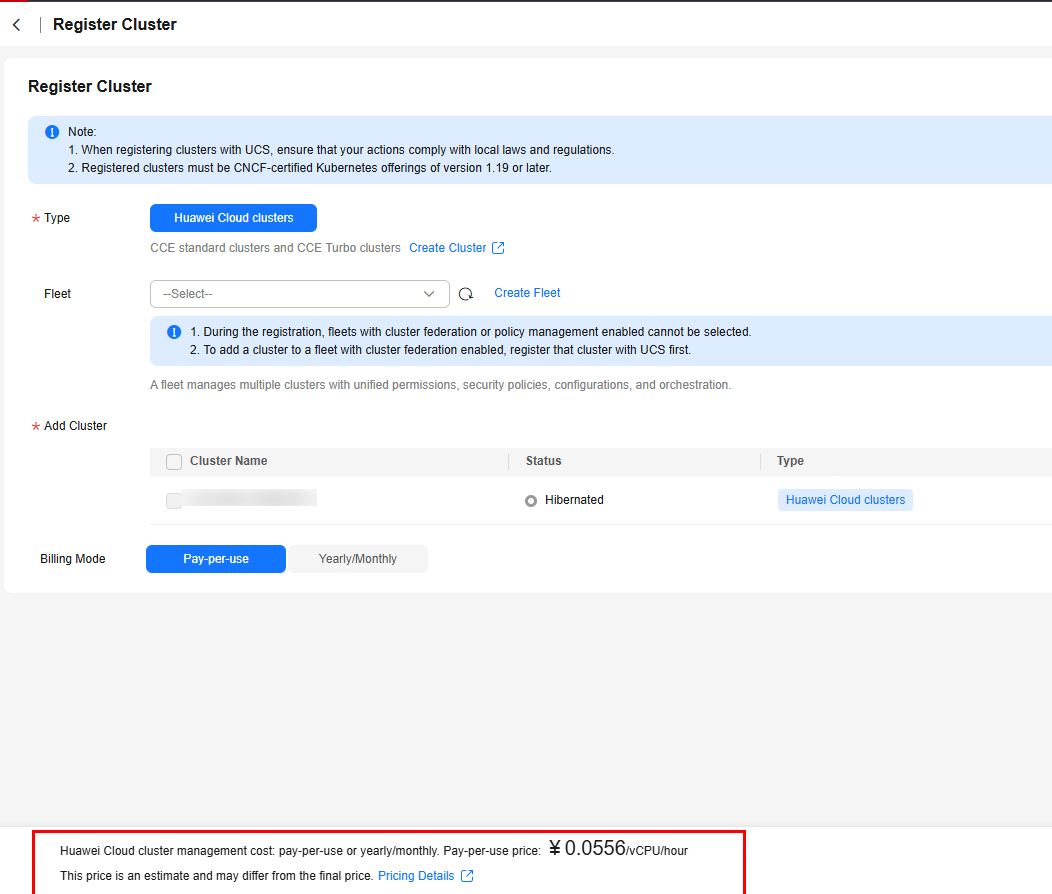Pay-per-Use Billing
Billing Mode
Pay-per-use billing means you pay nothing up front and are not tied into any contract or commitment. The following describes the billing rules.
Application Scenarios
Pay-per-use billing is good for short-term, bursty, or unpredictable workloads that cannot tolerate any interruptions, such as applications for e-commerce flash sales, temporary testing, and scientific computing.
Billing Items
You are billed for the following items on a pay-per-use basis.
|
Billing Item |
Description |
|---|---|
|
Clusters managed by UCS |
|
Assume that you plan to add a Huawei Cloud cluster to UCS. At the bottom of the cluster registration page, you can view the cluster management cost on a pay-per-use basis.


Huawei Cloud UCS is billed every hour based on the actual resource usage and required duration.
Billed Usage Period
The management cost of a cluster is calculated by the second and billed every hour (UTC+08:00). The billing starts when a cluster is connected and ends after the cluster is deregistered.
For example, if you connect a cluster to UCS at 08:45:30 and delete it at 08:55:30, you are billed for the 600 seconds from 8:45:30 to 8:55:30.
Feedback
Was this page helpful?
Provide feedbackThank you very much for your feedback. We will continue working to improve the documentation.See the reply and handling status in My Cloud VOC.
For any further questions, feel free to contact us through the chatbot.
Chatbot





